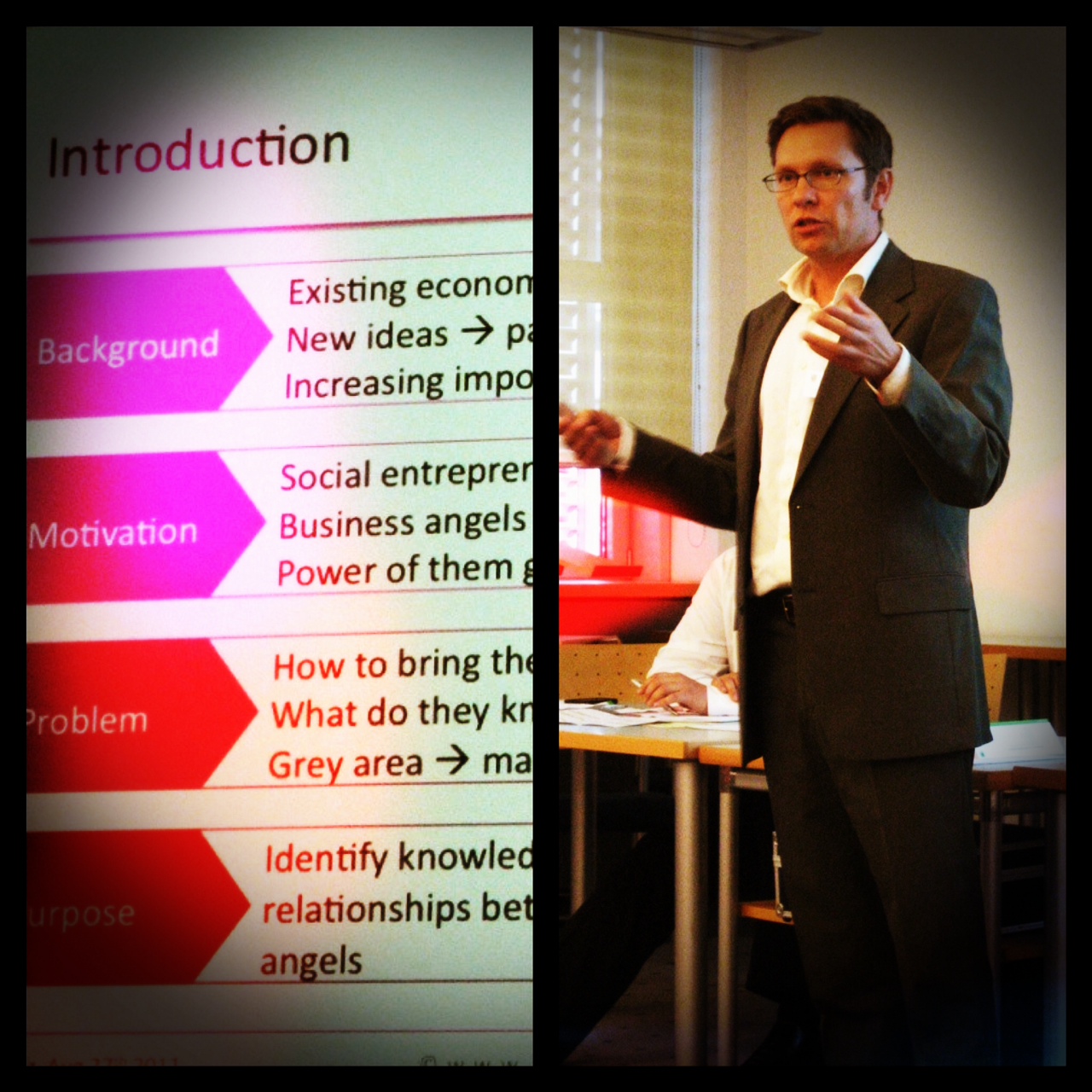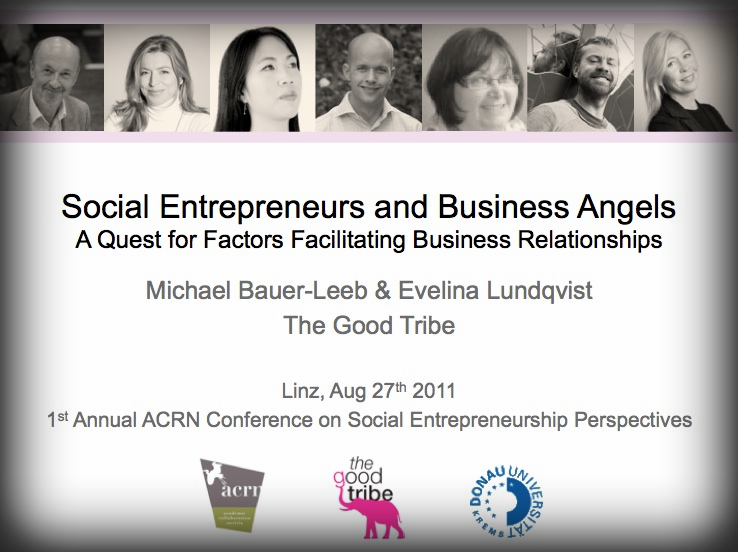Summer school thoughts: Different backgrounds - shared vision
 I just returned from a week of amazing discussion and knowledge generation together with researchers and practitioners at ACRN's 1st annual summer school and conference on social entrepreneurship perspectives in Linz, Austria.
I just returned from a week of amazing discussion and knowledge generation together with researchers and practitioners at ACRN's 1st annual summer school and conference on social entrepreneurship perspectives in Linz, Austria.
Talking and discussing with so many different people coming from research as well as practice from countries all over the world - among them Malaysia, Finland, The UK, Germany, Tanzania, Holland, Estonia – made this week very valuable for myself and for The Good Tribe’s ongoing work towards a strong movement of successful social entrepreneurs.
During my week in Linz I was struck by a very strong thought: I believe that we are all being influenced from our cultural backgrounds, values and beliefs and that we approach change in different ways. But what struck me is that despite our differences many of the conference participants seem to have been on the same page concerning the vision we pursue. We all speak of an ideal society that has left behind greed and material accumulation, that embraces cooperation and recognizes and cherishes all aspects of sustainability - social, environmental, and economic - working for the greater good of us all. To develop and strive for improvement not only to make sole financial profits, but also to generate total wealth for everybody. This vision may be a utopia – I am, and many with me are well aware of that. Still, we embrace the vision because we need a utopia enabling us to make the first small step towards it. What were we without our dreams?
Let me make one thing clear, though. I don't think social entrepreneurship is the new and almighty saviour capable of tackling all of our problems. That would be naive. We also need government's, commercial business's, and civil society's actions to accomplish this change. But I do recognize social entrepreneurs being very powerful catalysts leading this way of change. They affect businesses by serving as role models for a different way of doing good and sustainable business. They affect civil society in a deep way by changing the set of values and beliefs many of us still hold - especially about what living "the good life" means. And they affect governments by showing how social and environmental issues can be tackled and resolved in a very innovative and efficient manner.
Social entrepreneurship is a potent vehicle of paradigm change. Let's continue to determine how we all can contribute in the best manner and: Take Massive Action!

Many thanks to Othmar Lehner and Karin Stichlberger from ACRN who organized the week and brought so many of us together there. Many thanks also to all the participants engaging in discussions and contributing to shape the vision!
Michael Bauer-Leeb


